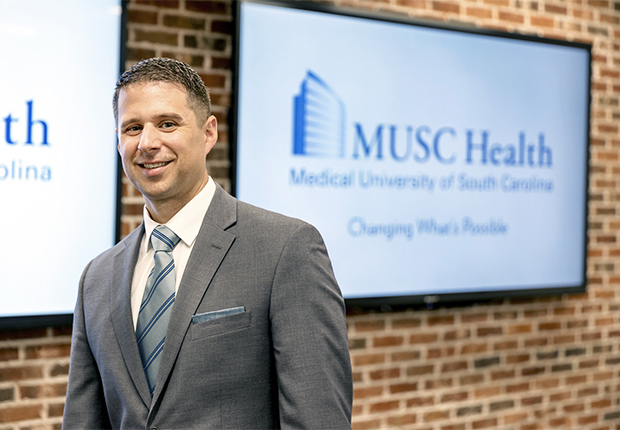AARP Hearing Center

By Holly Fisher
Rep. Shannon Erickson’s great-grandfather was one of those doctors in rural Georgia who traveled the countryside to visit their patients. Sometimes patients paid in cash and sometimes they paid in chickens. Erickson’s mother was a nurse who spent more than 20 years in elder care.
Her family history and her understanding of the need for better health care access in South Carolina led Erickson (R-Beaufort) to cosponsor a bill, signed into law in May, revising the Nurse Licensure Compact, which allows registered and licensed practical nurses from other states to practice personally or via telemedicine in South Carolina.
“The key piece here is access. Folks need to be able to have access to health care, and in the rural areas of our state, that is the biggest hurdle,” Erickson said. “The nurse compact act levels the playing field.”
Coretta Bedsole, AARP South Carolina associate state director for advocacy, said this action and other telehealth policies advanced in the state over the past few years go a long way toward expanding health care access.
For older people in rural areas, getting to a doctor’s appointment can be a lengthy ordeal. She noted that someone in a rural Upstate area trying to get to a medical appointment in Spartanburg would have to board a bus at 8 a.m., go to the appointment and then wait for the bus to take them home at 5 p.m.
Erickson said lawmakers understand how difficult it is for many residents to access health care. As a result, the nurse compact act, stabilizing the law that expanded the pool of nurses who can practice in the state, passed with virtually no opposition.
“South Carolina prides itself on being a good place for people who have chosen to retire or want to stay here and live out their lives,” Erickson said. “We’re just about as retirement friendly as you can get. Our tax code is set up so it’s attractive financially. Another of those support systems is health care access. We really do care.”
Tangible benefits
Several medical facilities have long provided telehealth.
The Medical University of South Carolina in Charleston has been using telehealth for more than a decade in the areas of maternal fetal health, stroke and psychiatry.
Shawn Valenta, director of telehealth for MUSC’s Center for Telehealth, works closely with medical providers to improve patient care and health outcomes.
Before telehealth, fewer than 40 percent of the state’s residents lived within a 60-minute drive of time-sensitive expert stroke care.
“Where South Carolina stroke victims were treated had a major impact on their outcome,” Valenta said. “Now, telehealth has increased that access to time-sensitive care to over 96 percent of the population.”
For example, when a possible stroke patient arrives at a small community hospital that doesn’t have a staff neurologist, the hospital can teleconference with a specialist at a facility like MUSC to determine if the patient needs to be transported there or elsewhere.
Telehealth also benefits patients in their homes as they manage chronic conditions, such as diabetes, or recover from recent surgery.
Christianna Novakovic, telehealth program coordinator for the Care Coordination Institute in Greenville, said certain patients take home a device that is connected to a blood pressure cuff or a glucometer.
The devices allow care managers to monitor basic vital signs and data from afar, saving both medical providers and patients hours of drive time to and from the doctor’s office.
Even older patients who haven’t grown up with technology are adapting quickly to this shift in medicine, Novakovic said. “Patients love it. It’s more convenient for them, saves them money, and they get healthier faster.”
Holly Fisher is a writer living in Mt. Pleasant, S.C.
Telemedicine Tips
• Ask your current health care provider about telehealth options, especially if you live in a rural area or have trouble securing adequate transportation.
• Check with your insurance provider about what is or isn’t covered by telehealth.
• Make sure the provider’s technology protects your privacy and complies with the Health Insurance Portability and Accountability Act. For example, providers shouldn’t be using Skype or FaceTime as those are not HIPAA-compliant.
Source: Shawn Valenta, Center for Telehealth at the Medical University of South Carolina































































